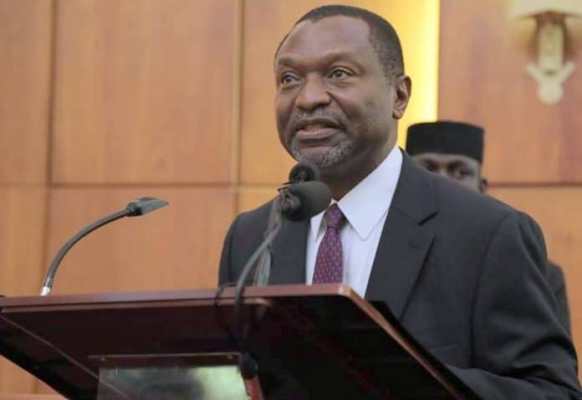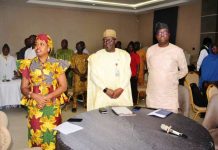ABUJA (Budget & National Planning Report)- The Federal Government is working on modalities for setting up focused labs in some critical areas of the Economic Recovery and Growth Plan (ERGP) to further consolidate the gains of the economic diversification programme.
Budget and National Planning Minister, Senator Udoma Udo Udoma, while briefing members of the Senate Committee on National Planning on the state of the economy, said the labs are intended to bring all the relevant stakeholders in the public and private sectors into weeks of intensive working sessions to brainstorm on practical steps to overcoming any identified challenges in the selected areas.
The central objective of the labs, he explained, will be to bring in private capital to finance a number of development projects across the country.
The Minister said government has already engaged some economic and development experts from the private sector and the academia on ERGP implementation to facilitate the process.
He told the Senators that an implementation unit has been set up in the Ministry to closely monitor the implementation of the critical initiatives of the plan and periodically evaluate implementation progress against set targets and milestones.
The unit is also to provide early warning signals of potential risks and work closely with the MDAs to articulate actionable measures to be taken against any identified constraints.
Referring to the recent National Bureau of Statistics (NBS) report which announced the country’s economy exit from recession, the Minister said even though a GDP growth rate of 0.55% is not a substantial growth rate, it nevertheless is significant because the downward drift has been arrested.
That fact that the downward drift has been arrested and the economic indicators are pointing upwards is a significant step forward in the effort to reposition the economy which took a downward trajectory beginning 2014 and slipped into a recession in the second quarter of 2016, he said.
He explained that with population growth rate at about 3%, the 0.55% growth in GDP was not likely to make any appreciable impact on people’s lives, but he was optimistic that by the time the 2020 target of 7% is realized, the full impact of the growth will be felt by Nigerians.
The Minister said the gladdening aspect of the development is that some very promising growth levels are being recorded in the non-oil sector, with agriculture posting 3.01% in the second quarter of 2017 and Industry turning positive for the first time in nine quarters.
Compared to the situation last year where 27 out of 46 economic activities recorded negative growth, only 21 recorded negative in the second quarter of 2017. “Headline inflation has declined since January reflecting tight monetary policy and strengthened Naira in the foreign exchange market”, he added
While appreciating the efforts of government in repositioning the economy, chairman of the Committee, Senator Rabiu Musa Kwankwaso said the achievements would be more appreciated when the people start feeling the impact of the economic reforms in their daily dealings.
A member of the Committee, Senator Madaki Bukar advised that serious consideration should be given to the establishment of micro-finance banks in the rural areas to enable local farmer have access to credits.
He said if the economic fortunes of the local farmers and small scale entrepreneurs improve, the larger economy will benefit from some kind of multiplier effect.






